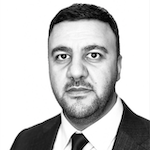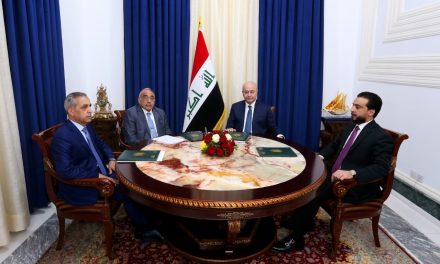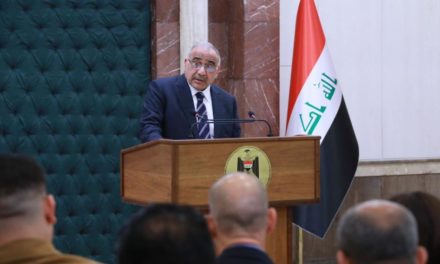One of the critical aspects of Iraq’s future development is effective policy planning, which requires an ability to analyse and evaluate policy in an objective manner. The educational culture in Iraq has always been focused on gathering information, and neglectful of critical analysis. This has led to a shortage of policy researchers which, when combined with the fact that there are still very few think tanks in Iraq, means public policy is not assessed or challenged by experts. There is very little access to information, or critical analysis, and that distorts how the public perceives politics and government performance. Another problem is the fact that we don’t have the right skill sets for young people who are not going to be academics, and maybe in the future would like to work in a think tank environment or become public policy researchers.
I have worked over the years to address this issue, pushing for more think tanks, analysts, and researchers to become active in Iraqi policymaking. One such initiative I recently concluded, with the backing of Century International and the kind support of the Carnegie Corporation of New York, was policy researcher training program. The two year project was conducted by Bridge, a development NGO that I lead in Baghdad. You can read more about the project here.
The pilot research training program we ran at Bridge aims to begin filling the gap in policy research. The idea was to recruit a cohort from across the country that enter a training program that teaches them not how to gather information and data, but how to write critically, how to analyze, how to focus on a specific area of policy, and then to be able to make that readable and reach a wide audience.
Now that the program has reached completion, 1001 Iraqi Thoughts is giving the trainee researchers a platform to showcase their work, thereby encouraging them and others to continue to research and publish policy work. The articles below look at a variety of subjects, assessing issues the researchers felt were a priority for the country, and that we hope will receive more attention in the future from policymakers.
From the series editor Sajad Jiyad
Essays:
How the Development Road Project can help Diversify the Iraqi Economy – Ali Yusif
Navigating Challenges and Prospects: Women in Iraqi Politics – Raghad Kasim
The Challenges Iraqis Face With the Study Abroad Programme – Yousif Alaa
The Dangers of Social Media Addiction and Rising Divorce Rates in Iraq – Husham Firas Muhsin
The Saudi-Iranian Reconciliation and Its Impact on Iraq’s Future – Ali Al-Mandalawi
Water Stress Threatens National Security in Iraq – Sajjad Sfaih
Seeking Synergy With Policy on Countering Extremism and Combating Terrorism – Mohanad Alrawi
The Faw Grand Port and Regional Implications – Saddam Al-Harithy

Sajad Jiyad
Sajad Jiyad is the Managing Director of Bridge, a youth development focused NGO based in Baghdad. He is a fellow at The Century Foundation and a political analyst. Sajad’s main focus is on public policy and governance in Iraq and is frequently published and cited as an expert commentator. Sajad’s educational background is in economics, politics, and Islamic studies.










